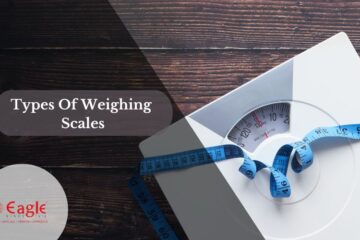Weight loss is complicated. You’ve probably heard a thousand tips, some promising miracles, others warning you of doom if you eat a single cookie. That noise can stress anyone. However, the truth is weight loss depends not on deprivation, but on correct nutrition. You must learn what to eat, when to eat, and why it works.
For example, many people skip meals. They think fewer meals equals faster fat loss. In reality, meal skipping sends your body into energy-conservation mode. Metabolism slows, hunger spikes, and decision-making falters, leading to overeating later. Or worse, prolonged undereating may reduce lean muscle mass, which is critical for calorie burning.
The way out is to eat right, eat consistently, and eat smart. But ever wondered what nutrients your body actually needs? Do all diet plans really stack up the same way or is one secretly better for you? Why do those tiny micronutrients matter more than you think? This guide breaks it all down.
Nutrition an Adult Body Needs Every Day
Your body never stops. Even at rest, you burn calories maintaining heartbeat, breathing, and cellular repair. For all that, nutrients are non-negotiable. Miss them, and the system compensates as weight loss slows, health declines, and recovery falters. Sometimes subtly, sometimes with obvious fatigue, hair loss, or metabolic slowdown.
Here’s a general guideline for healthy adults:
| Nutrient | Recommended Intake | Key Roles | Key Sources |
| Proteins | 80 g per kilo of body weight | Muscle maintenance, enzyme production, and immune function protect lean mass during weight loss, improving fat-to-muscle ratio. | Lean meats, fish, eggs, dairy, legumes, soy. |
| Carbohydrates | At least 130 g | The body’s preferred energy source, especially for the brain and high-intensity workouts. Whole foods are preferred over refined sugar. | Whole grains, fruits, vegetables, legumes. |
| Fats | 20–30 g | Essential for hormone production, nutrient absorption, and brain health. Unsaturated fats are preferred. | Nuts, seeds, olive oil, avocados, fatty fish. |
| Fiber | 25–30 g | Supports digestion, satiety, and blood sugar regulation; helps reduce hunger naturally. | Vegetables, fruits, whole grains, legumes. |
| Water | 2–3 litres | Hydration regulates temperature, aids digestion, lubricates joints, and influences energy perception. Even mild dehydration slows fat oxidation. | Water, herbal teas, water-rich fruits/veggies. |
Micronutrients require precision too. They don’t provide calories but they do control systems that determine how calories are used.
| Nutrient | Recommended Intake | Key Roles | Key Sources |
| Iron | 8–15 mg | Oxygen delivery. Deficiency impairs endurance, concentration, and energy metabolism. | Red meat, poultry, fish, lentils, and spinach. Pair with Vitamin C for better absorption. |
| Calcium | 840–1100 mg | Supports bones, nerve signalling, and muscle contraction; essential throughout life. | Dairy, fortified plant milks, tofu, leafy greens, and almonds. |
| Vitamin D | 600–800 IU | Supports immunity, bone health, and plays a role in fat metabolism. | Sunlight, fortified dairy/plant milk, fatty fish, and supplements if deficient. |
| Vitamin C | 75–90 mg | Needed for collagen synthesis, antioxidant protection, and improved iron absorption. | Citrus fruits, berries, kiwi, bell peppers, and broccoli. |
| Vitamin B12 | 1.8–2.6 mcg | Supports nervous system health, DNA synthesis, and red blood cell production. | Animal products (meat, eggs, and dairy), fortified cereals, and supplements (especially for vegans). |
| Magnesium | 360–420 mg | Important for muscle relaxation, enzymatic reactions, and sleep quality. | Nuts, seeds, whole grains, leafy greens, and dark chocolate. |
| Zinc | 11–12 mg | Aids cellular repair, immune defense, and wound healing. | Meat, shellfish, pumpkin seeds, legumes, and whole grains. |
| Potassium | 3500–5000 mg | Maintains fluid balance, blood pressure regulation, and nerve function. | Bananas, potatoes, avocados, beans, spinach, and coconut water. |
| Selenium | 30–55 mcg | Supports thyroid function and antioxidant systems. | Brazil nuts, fish, eggs, whole grains, and poultry. |
The takeaway: No fad diet can skip these.
If you remove a food group, you must replace what’s lost. Your body needs the right input to produce the right output.
Different Eating Diets for Weight Loss & Management
One diet doesn’t suit all. In fact, chasing “the best diet” is where most fail. The human body adapts remarkably. But biology, lifestyle, preference, medical conditions, and psychological comfort matter.
Let’s map the leading approaches for eating right for weight loss.
1. Mediterranean Diet
- Focus: Plant-heavy meals, lean proteins (fish and poultry), nuts, legumes, olive oil, and modest wine intake.
- Best For: Individuals seeking heart health, reduced inflammation, and longevity-supportive eating.
- Cons: Weight loss is slower if portion sizes remain uncontrolled. Olive oil, though healthy, is calorie dense.
2. Low-Carb (Atkins and Keto)
- Focus: Limits carbohydrate intake to trigger a metabolic shift called ketosis, where fat becomes the primary fuel. This diet changes how the body processes energy.
- Best For: Individuals managing insulin resistance or PCOS. Those who naturally prefer meals rich in protein and fats over carbs also tend to do well.
- Cons: Expect an initial adjustment period, called the “keto flu,” marked by fatigue and headaches. Possible nutrient gaps and digestive shifts are common. Less endurance in high-intensity, carb-dependent exercise.
3. Intermittent Fasting (IF)
- Focus: Restricted eating to specific time windows, like the 16:8 approach, where you fast for 16 hours and eat within 8, or alternate-day fasting, which cycles between feast and fast days.
- Best For: Busy people who prefer eating fewer meals without obsessing over calories.
- Cons: Possibility of overeating after fasts. Also, not recommended for those with eating disorder histories, pregnant women, or individuals with certain metabolic conditions.
4. High-Protein / Moderate-Calorie
- Focus: Elevates protein to maintain lean mass while controlling calorie intake.
- Best For: Athletes in weight-class sports and individuals with high satiety needs.
- Cons: Boredom if food variety is low; potential kidney strain in those with pre-existing conditions.
Each works when it respects energy balance. Each fails when unsustainable, nutritionally unbalanced, or psychologically burdensome.
The Role of Micronutrients in Weight Loss
Weight loss conversations often drown in macronutrient debates. Carbs versus fats. High protein versus moderate protein. Meanwhile, behind the scenes, micronutrients keep the machinery working. They influence mitochondrial efficiency, thyroid conversion (T4 to T3), adrenal hormone synthesis, appetite regulation, and muscle recovery.
Micronutrient deficiencies can derail weight-loss progress indirectly. For instance:
- Iron-deficient individuals often experience fatigue, reducing activity levels subconsciously.
- Low magnesium may disturb sleep, altering hunger hormones like leptin and ghrelin.
- Vitamin D insufficiency links with impaired fat oxidation.
- Even mild zinc deficiency can reduce taste sensitivity, influencing appetite regulation.
You won’t burn fat simply by taking a mineral supplement. But you will make fat loss harder by being deficient. Without micronutrients, metabolism falters, the body tries to compensate, cravings grow stronger, energy drops, recovery slows, and weight loss comes to a standstill. Therefore, nutritious diets for weight loss must cover micro and macro needs simultaneously.
Beyond Food: Other Factors Shaping Weight Loss
Diet is critical, but not exclusive. You can eat perfectly and track every calorie, but without considering the other pillars, progress slows. For example:
- Sleep less than 7 hours regularly? Lack of sleep disturbs your hunger hormones, making you feel hungrier and less full.
- Chronic stress elevates cortisol. Cortisol influences fat storage, especially around the belly.
- Sedentary behaviour, like not walking and not standing, reduces total energy expenditure, slowing progress even on controlled diets.
- Thyroid, insulin, and reproductive hormones all shift metabolism. Some drugs slow weight loss.
Equally important is psychological adherence. No strategy works without consistency. Indeed, overly rigid plans fail when social eating or emotional stress collide with strict rules. Balanced, forgiving frameworks outperform “all-or-nothing” mindsets over the long term.
Investing in a health fitness scale for your journey can be a good decision. A health fitness scale can show trends in body fat percentage, skeletal muscle, water content, and basal metabolic rate. This is more informative than simple body weight.
Why? Because weight alone can be misleading, but your body composition shows the real picture. When you see fat decrease while muscle stays strong, you stay motivated. This prevents giving up on your diet too soon.
Conclusion
Weight loss is realignment. It’s a dialogue between what your body biologically requires and what your lifestyle realistically allows. Eating right for weight loss means feeding your system smartly, not starving it blindly.
Sustainable weight control emerges from nutritious diets, balanced macronutrient intake, sufficient micronutrients, appropriate calorie management, and consistency across sleep, stress, and movement. You need to understand portions, timing, and quality.
When it comes to investing in a health fitness scale, ensure you’re investing in the best one. Ideally, it should be easy to use with a digital meter to keep you informed. Accurate Meezan offers one of the best health fitness scales that will be your partner throughout. It is robust and designed for accuracy. Explore it now.



0 Comments